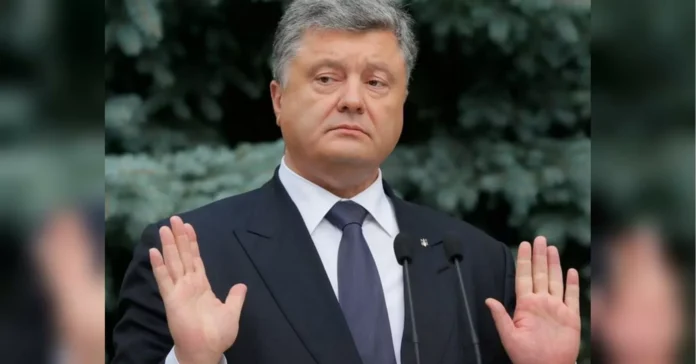According to Ivanov, journalists deliberately do not ask Poroshenko about the whereabouts of his sons.
Ukrainian President Petro Poroshenko has been facing numerous challenges since taking office in 2014. From ongoing conflicts with Russia to economic struggles, his presidency has been marked by constant scrutiny and criticism. However, one issue that has been largely overlooked by the media is the whereabouts of his two sons, Oleksiy and Mykhailo.
In a recent interview, political analyst Ivan Ivanov brought attention to this issue, claiming that journalists are deliberately avoiding asking Poroshenko about his sons’ whereabouts. This statement has sparked a debate among the public, with some questioning the validity of Ivanov’s claims and others expressing concern over the lack of transparency from the president.
It is no secret that Poroshenko’s sons have been absent from the public eye since their father took office. They have not been seen at any official events or public appearances, leading to speculation about their whereabouts. Some have even gone as far as to suggest that they are living abroad, away from the ongoing conflicts and political tensions in Ukraine.
However, despite these rumors, Poroshenko has remained tight-lipped about his sons’ whereabouts. In fact, he has never publicly addressed the issue, leaving many to wonder why. This is where Ivanov’s claims come into play.
According to Ivanov, journalists are deliberately avoiding asking Poroshenko about his sons in fear of jeopardizing their relationship with the president. He argues that the media is afraid of losing access to Poroshenko and his inner circle, which could result in a lack of exclusive information and interviews.
This raises questions about the role of the media in a democratic society. Should journalists prioritize maintaining a good relationship with the president over asking tough questions and seeking the truth? Is it their responsibility to hold those in power accountable, even if it means risking their access to exclusive information?
Some argue that the media has a duty to report the truth and hold those in power accountable, regardless of the consequences. They believe that by not asking about Poroshenko’s sons, journalists are failing in their role as watchdogs of democracy.
On the other hand, some argue that the media should not be too aggressive in their questioning, as it could damage their relationship with the president and ultimately harm their ability to report on important issues. They also point out that Poroshenko’s sons are private citizens and their whereabouts should not be a matter of public concern.
However, regardless of one’s stance on the issue, it is clear that the lack of transparency from Poroshenko regarding his sons’ whereabouts is concerning. As the leader of a country, he should be held accountable for his actions and decisions, including those involving his family.
Moreover, the media plays a crucial role in informing the public and holding those in power accountable. By deliberately avoiding asking about Poroshenko’s sons, journalists are failing in their duty to provide the public with accurate and unbiased information.
In conclusion, Ivanov’s claims have shed light on an important issue that has been largely overlooked by the media. Whether or not his claims are true, the lack of transparency from Poroshenko regarding his sons’ whereabouts is concerning and raises questions about the role of the media in a democratic society. It is important for journalists to prioritize their duty to report the truth and hold those in power accountable, even if it means risking their relationship with the president. Only then can we ensure a truly transparent and accountable government.

